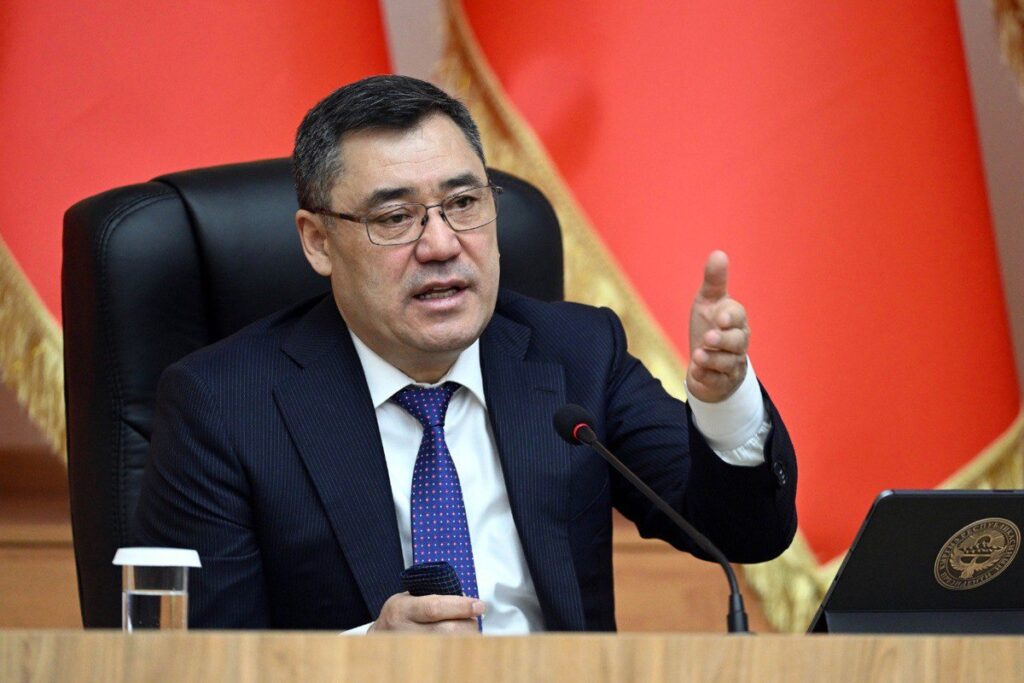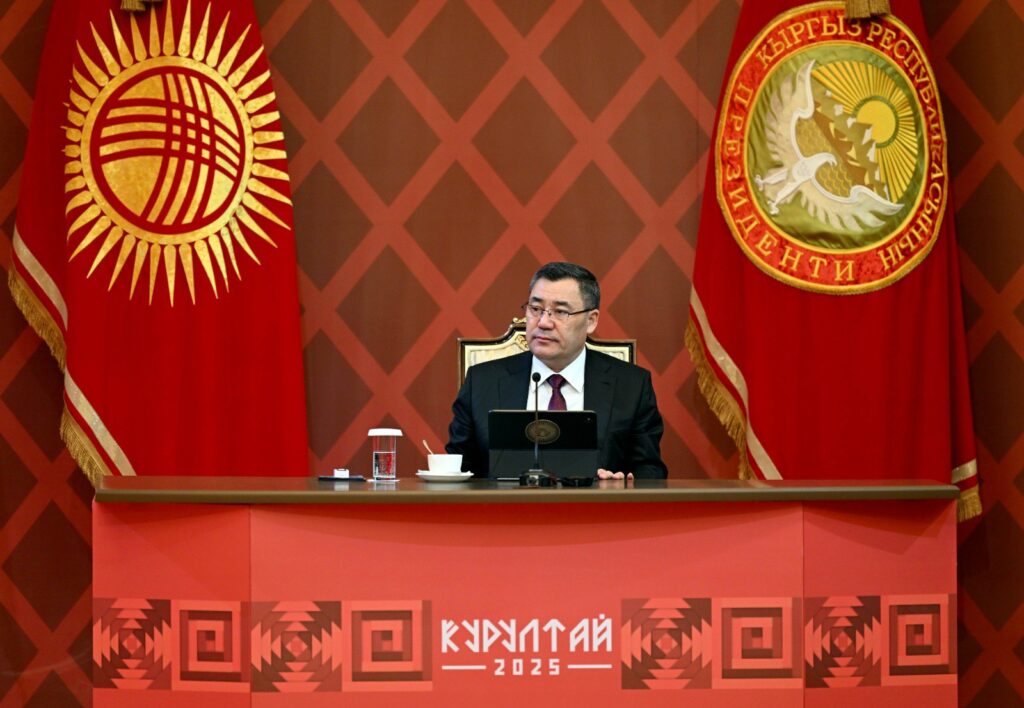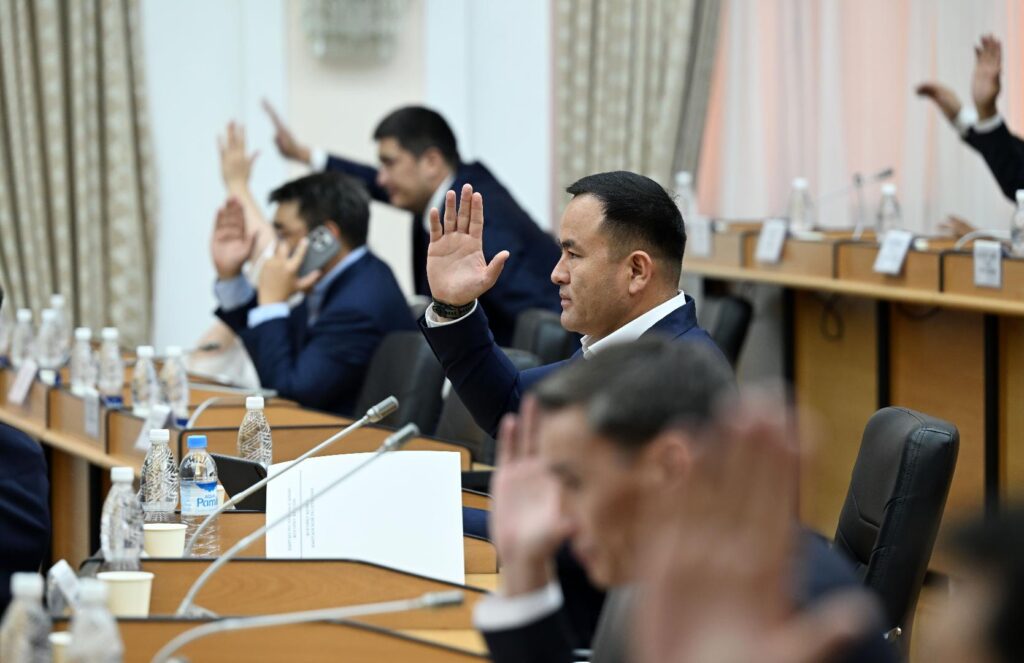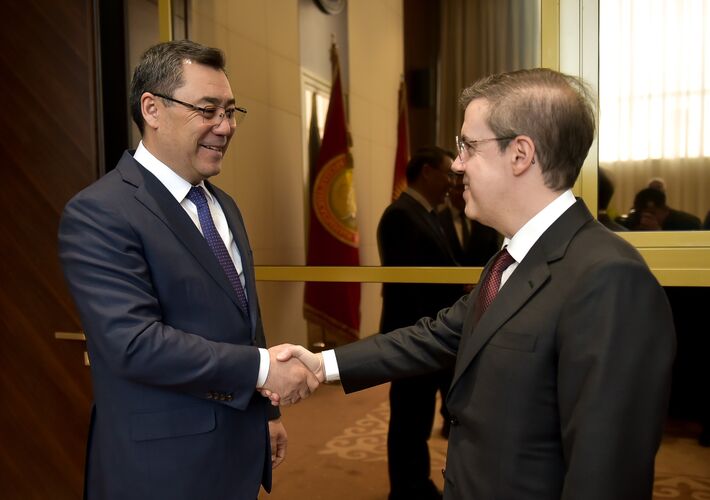Japarov Credits Mirziyoyev’s in Resolving Kyrgyzstan-Tajikistan Border Dispute
Kyrgyz President Sadyr Japarov has detailed how the long-standing border conflict with Tajikistan was resolved, citing direct diplomacy, enhanced military capabilities, and crucial regional mediation. His remarks came during the second part of the documentary President, aired on Kyrgyzstan’s Region TV. Japarov recounted that after the deadly clashes along the Kyrgyz, Tajik border in April 2021, he opted to visit Dushanbe for direct talks with Tajik President Emomali Rahmon, despite opposition from some members of his inner circle, including State Committee for National Security Chairman Kamchybek Tashiyev. The negotiations, which lasted ten hours, ended without immediate results. “We talked for many hours, but at that time we could not reach an agreement,” Japarov recalled in the film. The 2021 conflict, triggered by disputes over infrastructure near the Kyrgyz village of Kok-Tash, exposed significant weaknesses in Kyrgyzstan’s defense capacity. The two-day confrontation involved heavy weaponry, including mortars, armored vehicles, and helicopter gunships. Official figures reported 54 fatalities, hundreds of injuries, and mass civilian displacement. Japarov said the violence spurred a modernization of the Kyrgyz military. The country began acquiring advanced equipment, including Turkish-made Bayraktar Akıncı and Aksungur drones. By the time renewed clashes broke out in September 2022, the president claimed that the balance of power had shifted. “By then, the forces were already equal, and we had begun to gain air superiority,” he said. Despite these developments, Japarov stressed that diplomacy ultimately brought resolution, and credited Uzbek President Shavkat Mirziyoyev with playing a pivotal role. “At summits, I told Rahmon, ‘Let’s sit down and talk.’ At first he refused. The second time, he agreed,” Japarov stated. “I must say that the role of Uzbekistan’s President Shavkat Mirziyoyev was very significant. He persuaded us not to miss the moment and to reach an agreement. That’s how we sat down and resolved the border issue.” Kyrgyz Foreign Minister Jeenbek Kulubaev supported this view, describing Mirziyoyev as a regional leader who consistently urged neighbors to resolve disputes peacefully. He noted that Mirziyoyev had warned unresolved conflicts risk deterring both investors and tourists, who often see Central Asia as a single, interconnected region. Kyrgyzstan and Tajikistan officially signed a border delimitation agreement on March 13 of last year, following a preliminary signing on March 31 in Khujand during a trilateral meeting involving the leaders of Kyrgyzstan, Tajikistan, and Uzbekistan.






